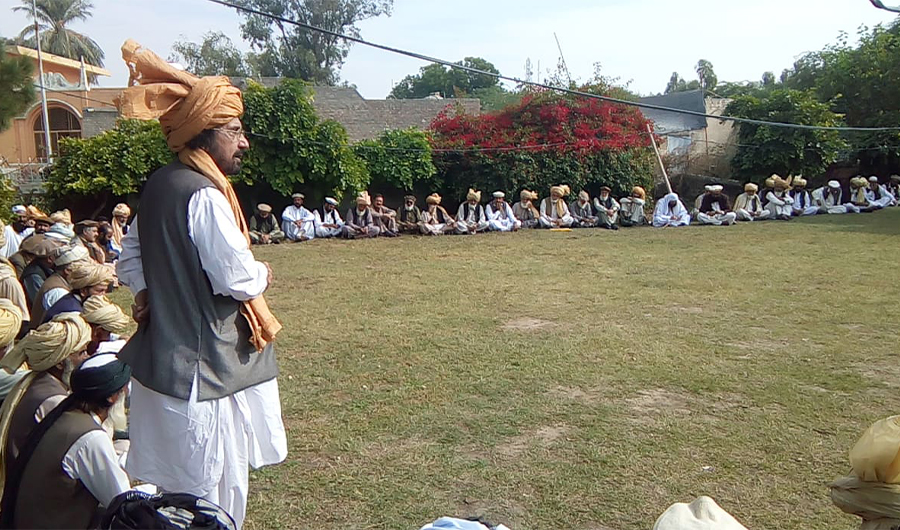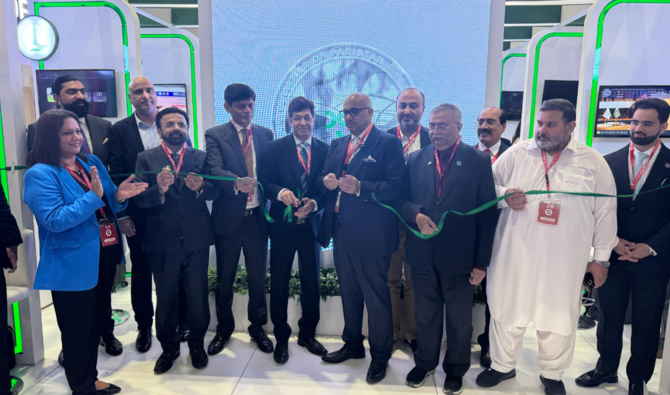PESHAWAR: Tribal leaders in the former Federally Administered Tribal Areas (FATA) want the old jirga system restored as they oppose the Khyber Pakhtunkhwa (KP) government’s recently introduced Alternate Dispute Resolution (ADR) law.
ADR came into effect in tribal districts on Dec. 26, under the 2019 KP local government amendment act, but it has not been well received by tribesmen, who insist on the restoration of traditional jirgas – councils of elders – to deal with settlement to tribal disputes.
Malik Qabil Mehsud, a tribal elder from South Waziristan district, told Arab News that before the FATA’s merger with KP, jirga decisions could be challenged by higher forums, but under the new law district administrators would have the final say.
According to the ADR law, authorities would form a reconciliation committee in each tribal district, comprising up to 40 members, including tribesmen and administration officials. Committee decisions would not be subject to challenge in a court of law.
According to Mehsud, giving the final say to a district’s deputy commissioner would tantamount to “imposition of a silent martial law.”

Tribal elders attend a jirga session in Tank, South Waziristan tribal district, on Jan. 2, 2020. (Photo courtesy: Tank Jirga)
“It is yet another attempt by the district administrator to accumulate more powers. The deputy commissioner – a top administrator in a district – enjoys the same power as the political agent in former FATA. It is simply the law of the jungle. We want the old open-ended jirgas in which all and sundry can participate,” Mehsud said.
The political agent used to be the administrative head of each tribal agency, representing the president of Pakistan and the appointed governor of KP.
In line with ADR rules, conflicted parties have one month to appeal reconciliation committee verdicts.
Salahuddin Afridi, another tribal elder from Khyber tribal district, said the new ADR system would allow lawmakers of the National Assembly and of the Provincial Assembly, as well as senators to force district administrators to appoint their near and dear ones as ADR committee members.
“Before the FATA-KP merger, upright and respectable elders with in-depth knowledge of tribal customs and laws used to hold jirgas. But under the ADR system, inexperienced young boys will come forward, which can create a huge mess,” he said.
Jamal Dawar, another respected figure from North Waziristan district, said that granting judicial powers to deputy commissioners under the ADR law contravened the Constitution.
“The KP government should first hold local bodies’ election and then nominate successful candidates to the ADR committees. The district administrators should not be empowered to select ADR members as it will make mockery of justice,” he said.
Jirga in tribal districts is the main meeting for consulting and discussing intertribal affairs, land and money disputes and blood feuds. Tribal leaders hail it as democratic and participatory, stressing that an opportunity to participate is accorded to everyone.
















